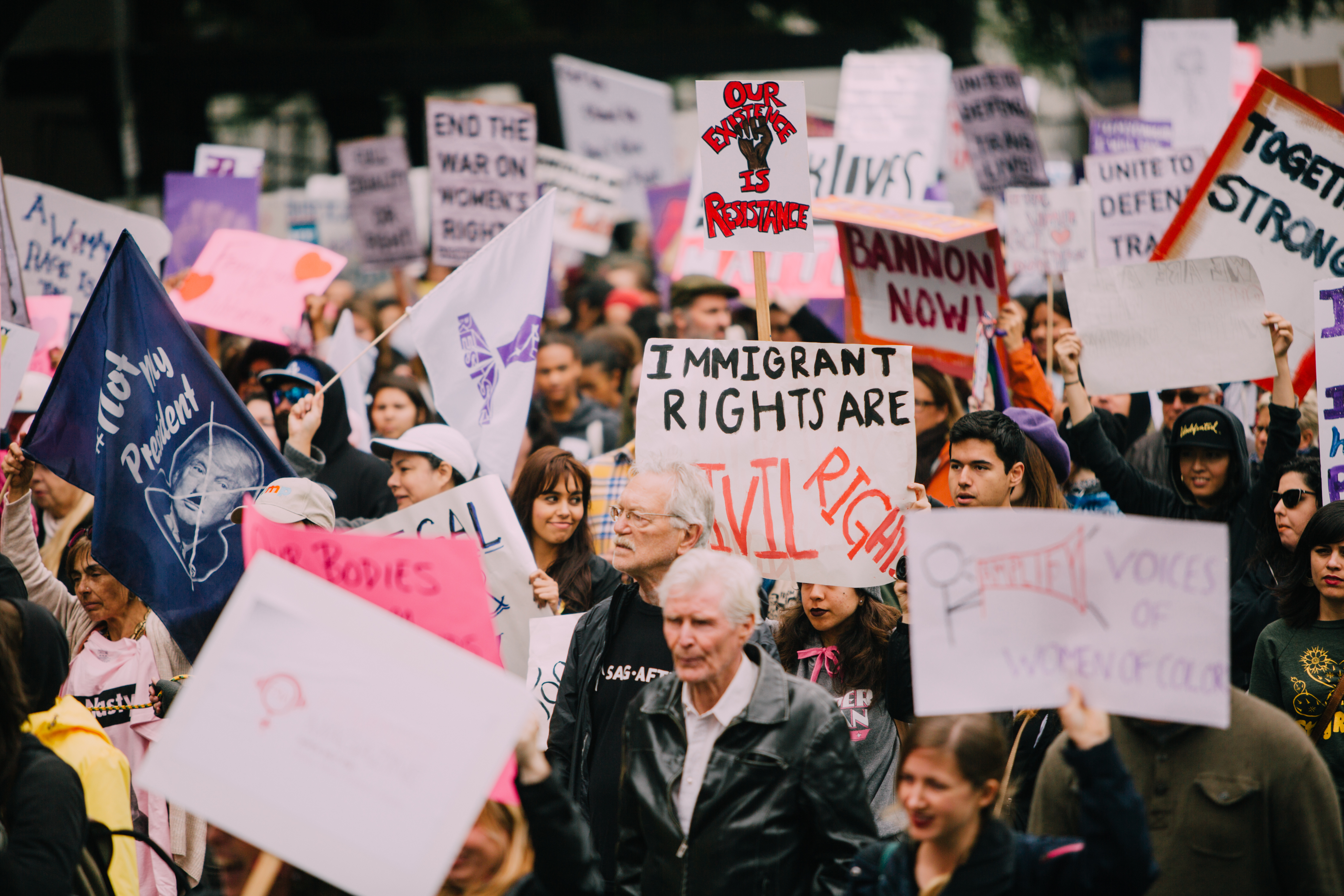
Google ‘international women’s day’ and the first hit that comes up is internationalwomensday.com.
Given its url the site definitely looks the part. The slogan “an equal world is an enabled world” runs across the top of the sleekly designed home page; there are female gender symbols and the women’s day hashtag “#eachforequal”, a colour scheme heavy on purple (the colour associated with the day) and a place to order international women’s day resources, banners and balloons. The corresponding twitter account @womensday has over 125,000 followers.
But at internationalwomensday.com, things are not what they seem. Despite appearance, the site does not belong to a successful global campaign or a grassroots group. Instead, in amongst the proclamations to “build a gender equal world”, is the promotion of international corporations Amazon, HCL, Avon and Medtronics. Indeed, the vast majority of the site’s content reads like advertising copy for these companies.
Selecting ‘women entrepreneurs’ from the drop down menu titled ‘missions’ takes you to content that is almost exclusively about cosmetics company Avon.
Traditionally, Avon’s female workforce sold cosmetics to women in the suburbs who lived an hour away from the nearest department store. But today’s ‘Avon ladies’ are a far cry from the old stereotype of a smiling suburban wife in a pillbox hat going door to door.
Now, Avon representatives hustle hard. To move product they send hundreds of personalised messages about Avon to friends on Facebook; they work through their lunch breaks selling and sampling Avon products to colleagues; they give out cards and cosmetic samples to waiters when they go out to eat.
And they do more than sell product. Avon is a multi-level market scheme so the big money is in recruitment. If representatives recruit people to sell the product, they get a cut of the money Avon makes from its own sales. The company uses the language of self-actualisation and female independence to recruit its sellers. The copy on the international women’s day website reads: “Avon has been built on a foundation of giving economic empowerment to women around the world.”
In reality, however, Avon’s business is built on a foundation of debt and stress. Up to 99% of people who join multilevel-marketing companies lose money, with many forced into thousands of dollars worth of debt. Women experience significant psychological stress when working for such companies, reporting intense panic and a sense of failure if they don’t live the profitable, empowered life promised by Avon, despite the odds being stacked against them.
But the corporate onslaught doesn’t end there. Clicking on ‘women at work’ takes you to a page emblazoned with Amazon ads, which run down the side and all along the top, as well . as a twitter feed provided by @amazonnews.
The first article “women powering Amazon” begins with a video showing women not only working in top jobs at the company, but also women working on the factory floor, looking happy and relaxed as they toss parcels into trolleys – all of them helping, we are told, to “build a global customer fulfilment network”.
Of course, the reality of working on the e-commerce behemoth’s factory floor couldn’t be further from the fantasy laid out in the video. Amazon is notorious for its poor working conditions and abusive labour practices. Workers are forced to use bottles instead of going to the toilet to avoid leaving their posts; they are not entitled to sick leave, even when they are pregnant, and are put under extreme pressure to work faster – injury rates are high.
It is particularly ironic that Amazon is a partner on internationalwomensday.com given that the conditions in its factories are the 21st century equivalent of those that sparked the strike that originated the first ever women’s day in 1908 in New York.
Besides the four brands listed as ‘partners,’ there is no information about who is behind internationalwomensday.com. Novara enquired twice but received no reply.
However, reading the small print shows that the website was made by self-proclaimed “purpose-driven enterprise” Aurora Ventures – an enterprise that counts Avon and Amazon as clients. According to their own site, Aurora Venture’s aim is to “help drive a more female friendly angle to their [clients’] brands.”
But with a client list featuring the morally dubious likes of arms manufacturer BAE Systems and Goldman Sachs International – and indeed Avon and Amazon – it seems that Aurora Venture’s project is one centred on the gendered equivalent of greenwashing rather than any kind of meaningful political ambition.
This corporate co-option of the idea and imagery of International Women’s Day has repercussions far beyond March 8. internationalwomensday.com seeks to link Amazon and Avon to women’s empowerment in a bid for them to be seen as ‘pro-women’ without having to reform any of their exploitative practices, which are particularly bad for women. To actually be considered as supporting women companies like Amazon and Avon must affect real systemic change.
Yet, despite their multi-billion dollar corporate efforts many women see through this and are actively organising against the corporate take-over of International Women’s Day.
Claire English, organiser at the women’s strike UK, which calls on women to strike from both paid and unpaid work on March 8, says, “We don’t want a world where women are ruthlessly exploited by corporations only for this to be sold back to them as empowerment. We want a world where women’s work, both paid and unpaid, is valued and where care is placed at the heart of our society.”
It is this vision of International Women’s Day which must be extended and defended, for we are not #eachforequal but all for liberation.
Rosa Campbell is completing a PhD on the global history of women’s liberation at the University of Cambridge and has just finished a children’s book about the history of International Women’s Day.
You can learn more about the work of the women’s strike at: https://womenstrike.org.uk/